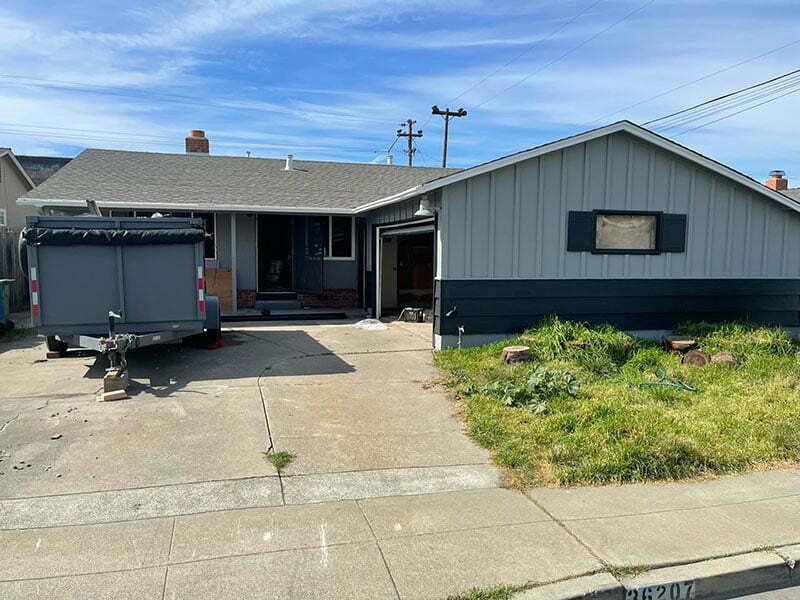Distressed Properties: What They Are & How to Invest Successfully

Distressed Properties: What They Are & How to Invest Successfully
Posted on March 25, 2025 by Pivot Property Management
Ever wondered how some savvy real estate investors always seem to find hidden gems—the properties that most others overlook? Often, these are what we call distressed properties.
At first glance, distressed properties might not seem like a great deal. But if you have the right knowledge and approach, these homes hold enormous investment potential. At Pivot Property Management, we’ve guided many investors through the process. Let’s break down what distressed properties are, their pros and cons, and how you can invest successfully.
What Exactly Is a Distressed Property?
In our experience at Pivot Property Management, distressed properties are typically homes undergoing foreclosure, pre-foreclosure, or those already repossessed by banks or lenders.
What causes a property to become distressed? Usually, financial hardship—such as missed mortgage payments, unpaid taxes, divorce, bankruptcy, or job loss. When an owner can’t keep up financially, these properties end up sold below market value, attracting smart investors who understand the opportunity.
Pros and Cons of Investing in Distressed Properties
Before investing, it’s critical to weigh the potential benefits and challenges:
Pros
- Lower Purchase Prices: Typically, distressed properties sell for much less than their market value, enabling investors to purchase real estate at bargain prices.
- Higher Profit Margins: Renovating these properties often results in increased value. Improvements can attract higher-paying tenants or buyers, substantially boosting potential returns.
Cons
- Renovation Expenses: Distressed properties often need significant repairs. Structural issues, outdated systems, or cosmetic renovations require considerable investment and time.
- Legal Complications: These properties may involve complex legal issues such as liens, foreclosures, or title disputes, requiring additional time, expertise, and expense to resolve.
Types of Distressed Properties to Consider
As you start investing, it’s important to understand the different categories of distressed properties:
- Foreclosures
- When owners fail to pay mortgages, banks repossess properties and often auction them off below market price.
- Pre-foreclosures
- These properties are in the early stages of foreclosure. Owners may sell at a discount to avoid foreclosure, creating potential bargains for proactive investors.
- Short Sales
- Homeowners sell properties for less than their mortgage balance, usually with lender approval. It can mean buying properties below market value but involves lengthy lender negotiations.
- Bank-Owned (REO)
- Real Estate Owned properties are homes banks didn’t sell at auction. Banks are often eager to offload these, offering investors attractive pricing but sometimes with specific conditions attached.
- Tax Lien or Tax Deed Sales
- Investors purchase property liens or deeds from local governments due to unpaid taxes, offering the potential to acquire ownership at reduced costs.
- Abandoned or Neglected Properties
- Investors buy vacant, deteriorating properties at discounted prices and restore them for profitable resale or rental.
- Probate Sales
- Properties sold after the owner’s death to settle estates, often priced below market value but involving legal processes.
- Divorce or Bankruptcy Sales
- Owners needing quick liquidation during divorce or bankruptcy can present opportunities for investors willing to move swiftly.

How to Invest in Distressed Properties: A Step-by-Step Guide
Pivot Property Management suggests this proven process:
Step 1: Set Your Budget Clearly
Include purchase costs, repairs, taxes, insurance, potential legal fees, and emergency funds.
Step 2: Secure Financing Early
Have your finances in place before searching to gain an edge in competitive markets. Cash offers usually hold the most appeal for distressed sellers.
Step 3: Find the Right Properties
Distressed properties don’t always advertise themselves. Here’s how you can spot them:
- Drive for Dollars: Look for neglected homes, unkempt yards, or abandoned properties.
- Real Estate Auctions: Attend foreclosure or bank auctions to find potentially undervalued homes.
- Probate Listings: Monitor probate court proceedings and estate sales for motivated sellers.
- Tax Delinquency Records: Local tax offices often provide leads on distressed owners.
- Online Searches: Utilize resources like MLS listings and specialized platforms for foreclosures or short sales.
Step 4: Conduct Thorough Due Diligence
Always hire professionals to inspect properties thoroughly, checking for structural issues, system problems, and legal complications to avoid expensive surprises later.
Step 5: Negotiate & Make an Offer
Research comparable properties, assess repairs needed, and negotiate aggressively but fairly for the best deal.
Step 6: Close the Transaction
Use professional title companies, attorneys, and realtors to ensure smooth closings, clear titles, and correct paperwork handling.
Step 7: Renovate Strategically
Target renovations with the highest returns, such as kitchens, bathrooms, curb appeal enhancements, and energy efficiency improvements, to maximize value.
Step 8: Rent or Sell for Maximum Profits
Choose whether to resell for immediate profits or rent the renovated property for continuous income streams. Pivot Property Management can manage your property, tenant screening, leasing, and maintenance tasks for hassle-free returns.
Turn Your Distressed Property into an Investment Win with Pivot Property Management
Distressed properties represent an exciting but complex investment strategy. If handled wisely, they can lead to substantial returns. Understanding their types, costs involved, and potential risks positions you to make smart choices.
At Pivot Property Management, we’re experts in helping you turn distressed properties into high-performing assets. From tenant acquisition, property marketing, ongoing maintenance to full-service management, we simplify your investment journey.
Ready to find your next hidden gem? Contact Pivot Property Management today, and let’s grow your real estate investment together!

